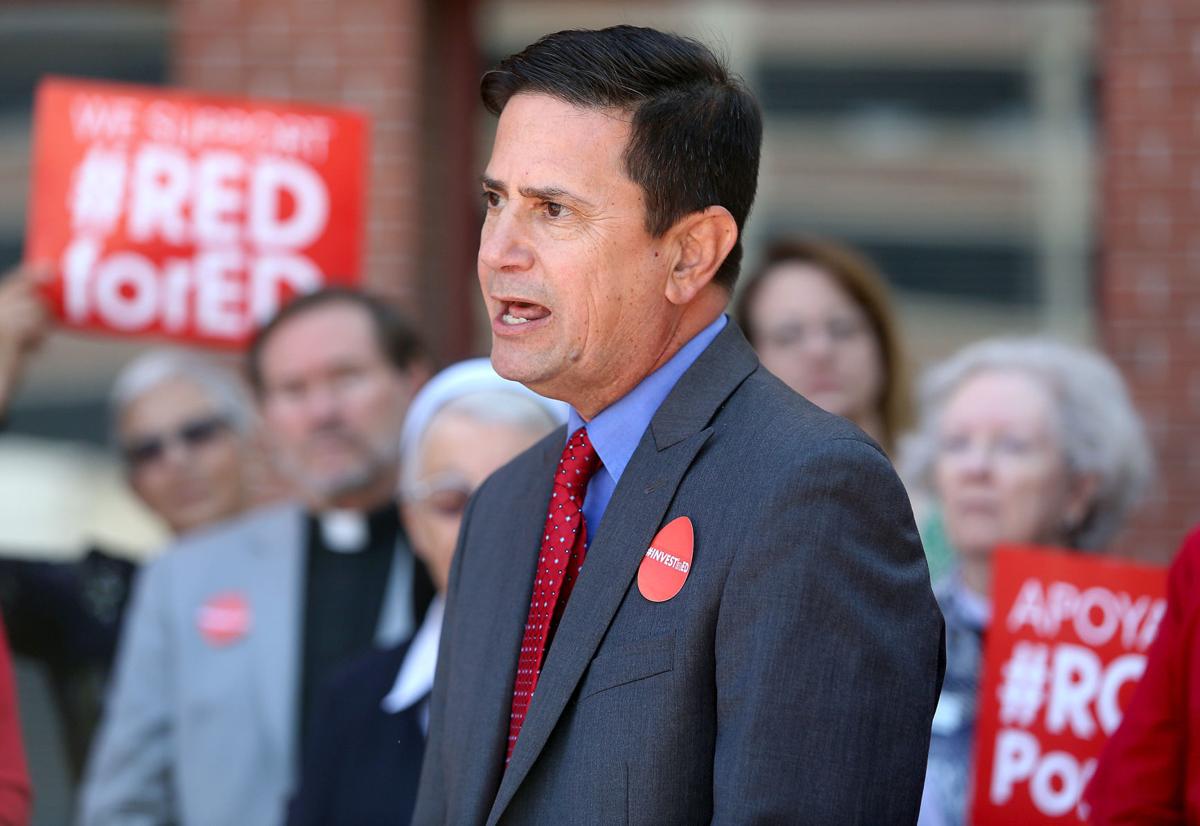PHOENIX — Education groups launched an initiative drive Monday to raise taxes on the wealthiest Arizonans to generate an additional $940 million for public education.
The proposal would add a 3.5% surcharge on income taxes owed by individuals making more than $250,000 a year and couples filing jointly with income of more than $500,000. This would hit the top 4% of Arizonans, estimates David Lujan, director of the Arizona Center for Economic Progress.
Lujan’s group is among those backing the initiative. Others include the Arizona Education Association, Stand for Children and the Children’s Action Alliance.
The new measure is similar to one that did not make the ballot last year. That proposal would have created two new additional tax brackets for those in the upper income range.
Backers need 237,645 valid signatures on petitions by July 2 to put the issue on the November ballot.
Voters actually could be faced with two choices.
State Sens. Sylvia Allen, R-Snowflake, and Kate Brophy McGee, R-Phoenix, are proposing to ask voters to increase the current special 0.6-cent education sales tax to a full penny. That could raise about $500 million.
In that case, however, not all of it would wind up in K-12 education. Their plan would also set aside money for the universities and community colleges.
Lujan defended financing education needs on the backs of the most wealthy.
“The Legislature has cut taxes every year since 1990,” he said. “Many of those tax cuts have been for corporations and the wealthiest of Arizonans.”
Those include cuts in income tax rates, a 30% cut in corporate income taxes, additional tax breaks for capital gains, and various exemptions from state sales taxes for purchases such as fine arts.
At the same time, Lujan said, the state has become more dependent on sales taxes, “which means everyday Arizonans have been paying more as a portion of their income for education.”
He said it makes sense to put all of the additional burden on those earning more than $250,000 a year, saying that makes the state income tax system more progressive.
Lujan said there was some consideration to asking voters to increase corporate income taxes.
But he said that wouldn’t provide immediate financial benefits because companies are sitting on more than $1 billion in tax credits they could not use in prior years.
“Because of the credit balance issue, you’re not going to have the revenue to put money into the classrooms as soon as we like,” he said.
Voters never got a chance to weigh in on last year’s initiative.
In a 5-2 ruling, the Arizona Supreme Court said organizers failed to properly explain in the legally required 100-word description how much tax rates would go up under the plan.
This version, with its surcharge on existing tax rates, should avoid that same challenge.





